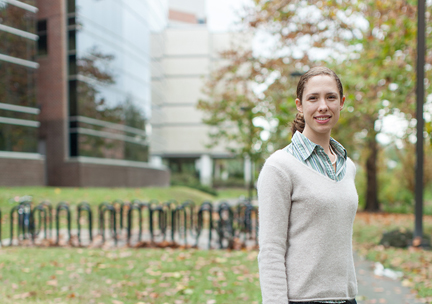 By April Frawley Birdwell
By April Frawley Birdwell
Speeding headfirst down a perilous winding chute of ice at speeds more than 70 miles an hour sounded crazy to Aliyah Snyder’s mother. But to Snyder, a surfer, a rower and a generally adventurous type, the obscure winter sport “skeleton” sounded fun.
After watching the sport and trying out in Lake Placid, N.Y., Snyder joined the Israeli national skeleton team in 2007 and competed for two years, aiming to make the 2014 Olympic team. But before she could realize that dream, a series of concussions, coupled with the constant shaking from barreling down the icy track, ended her career.
“The neurologists told me I had something similar to shaken baby syndrome as an adult,” Snyder says. “After the last concussion, it took me two years to recover.”
Suffering through a range of symptoms from headaches to cognitive and visual impairment that left her unable to drive and work, Snyder medically retired and moved back in with her parents.
“It was a difficult time,” she says. “I would be in the kitchen in the house where I grew up, but I could not remember where things were.”
Slowly, she started to recover, and she realized she wanted to focus on a new goal — helping other people avoid or know how to deal with sports concussions. Last year, she joined the College of Public Health and Health Professions as a doctoral student in the department of clinical and health psychology and is focused on developing assessment tools for sports concussions.
Part of helping athletes and others with concussions is understanding the long-term effects. For example multiple injuries might lead to changes in the structure of the brain that contribute to longer-lasting symptoms and problems, Snyder says.
With another grad student, she also launched Athlete Brain, a group of volunteers that is raising awareness about sports concussions through HealthStreet, a UF program that helps link the community to needed services.
Looking at her life now as a Ph.D. student poised for a new career, Snyder says it feels surreal compared to where she was just two years ago.
“It was very scary, but it allowed me to move into the area I am in now. If I had not gotten injured I would probably still be in Lake Placid,” she says. “While that is something I would have been very proud of myself for, the dreams and goals I have here are more fulfilling than an individual goal.”
Note: Snyder’s story is excerpted from a feature that appears in the December/January issue of The POST on inspiring faculty, staff and students of UF&Shands.

